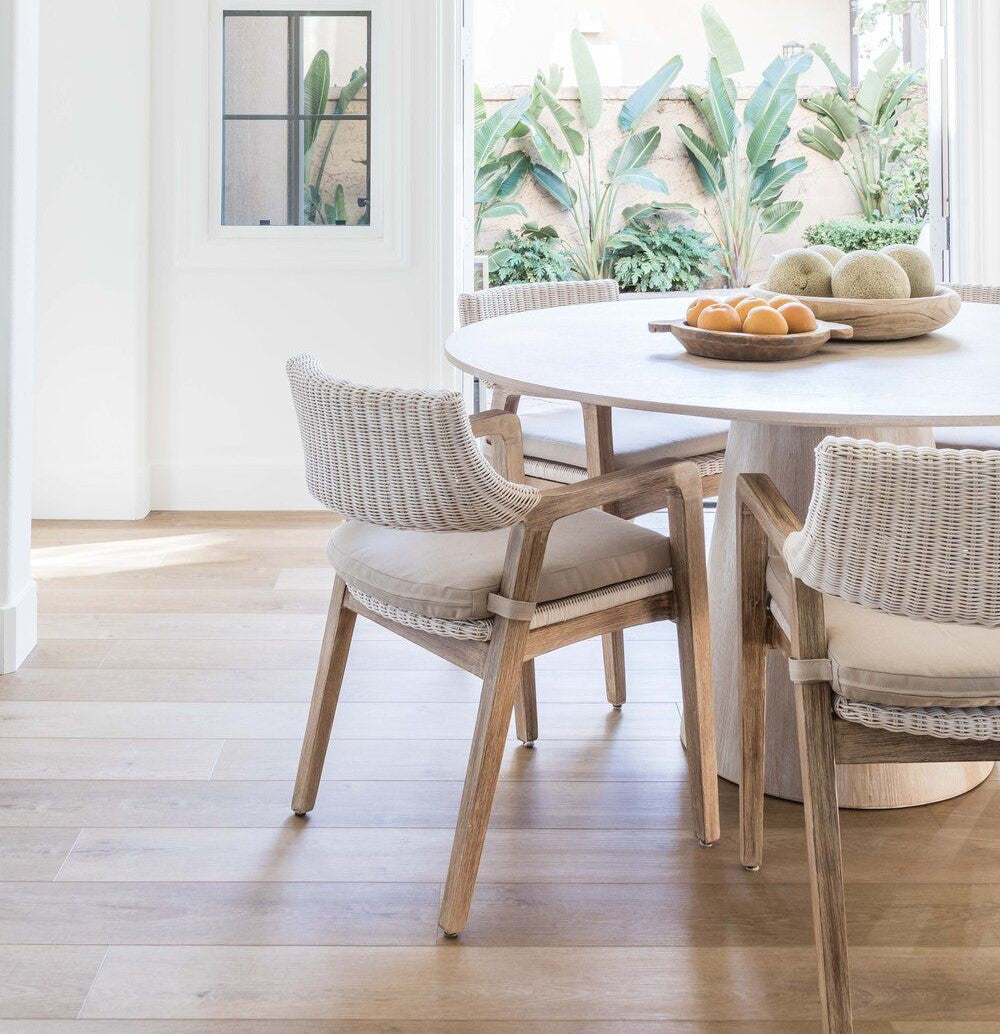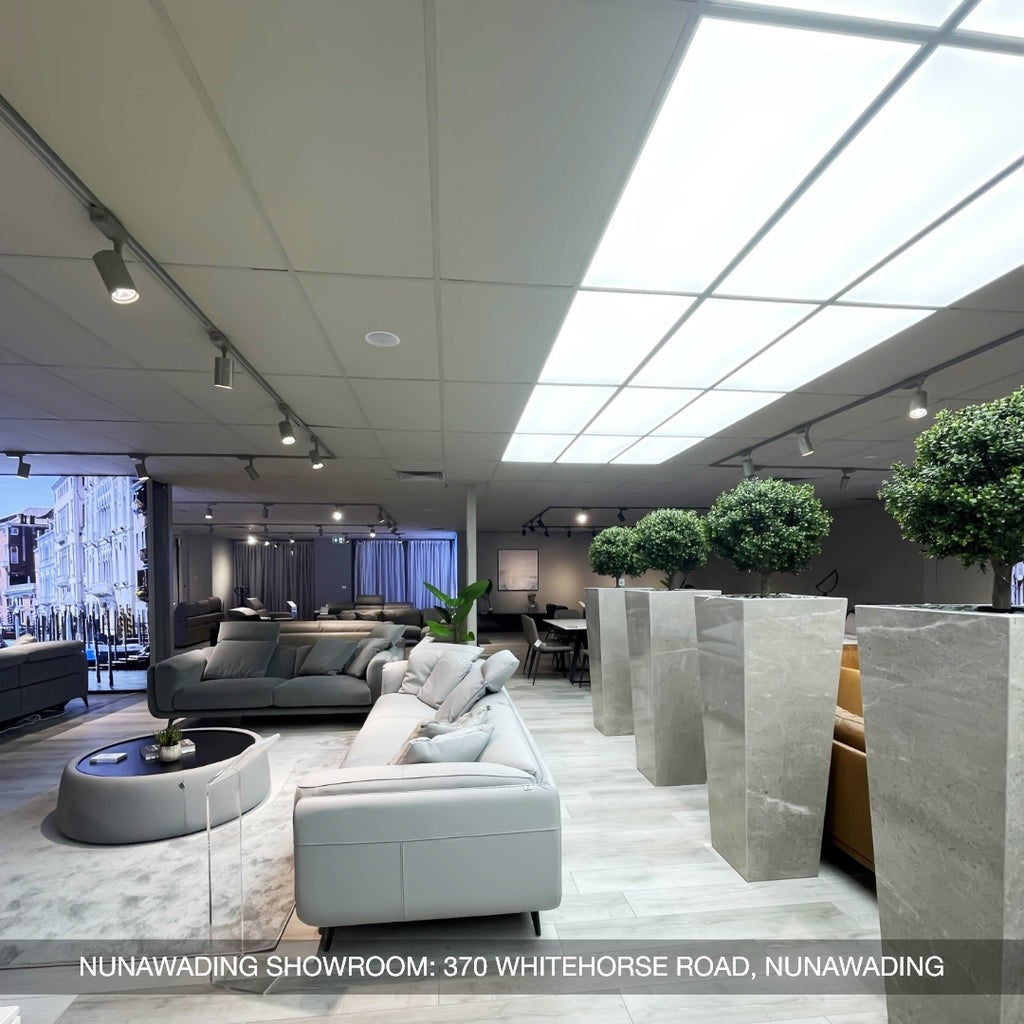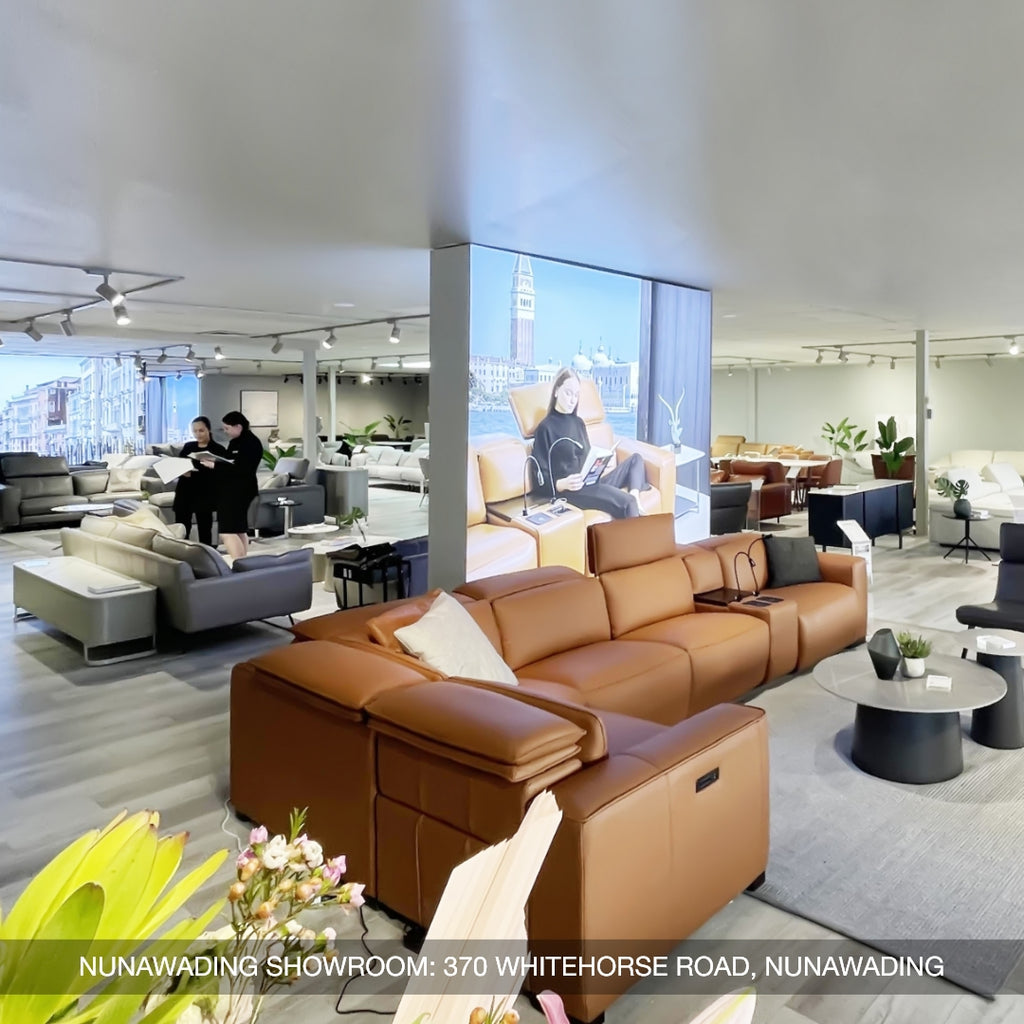Choosing the ideal dining table for your home is a pivotal decision in the realm of interior design. The debate over round vs rectangular dining tables has long been a topic of conversation among homeowners and designers alike. Both options offer unique benefits and cater to different lifestyles and spatial requirements. Your choice will significantly impact the aesthetics of your dining area and how you utilize the space.
The selection process entails a careful evaluation of your personal style, the dining room's size and layout, and the ambiance you wish to create. So, the question persists, which is better round or rectangle dining table? In this discourse, we shall examine the virtues of both options and guide you towards the most suitable choice.
How Different Shapes Complement Various Interior Designs
The Circle's Allure: Symmetry And Fluidity
The Circle's Allure: Symmetry And Fluidity
The choice of dining table shape is an essential aspect of interior design, as it can dramatically influence the overall feel and functionality of a room. When it comes to the round vs rectangular dining table debate, each shape brings a unique set of attributes to the table. Circular tables have an inherent allure, with their symmetrical design creating a sense of fluidity and harmony.

Circular tables have an innate charm, thanks to their symmetrical design that promotes a feeling of fluidity and harmony.
The absence of sharp corners fosters an inviting atmosphere that encourages conversation and interaction, making them an excellent choice for smaller dining spaces or rooms where fostering a sense of togetherness is a priority. The circular shape complements contemporary and minimalist design themes, adding a touch of elegance and flow to the setting.
The Rectangle's Strength: Structure And Tradition
On the other hand, rectangular dining tables offer a different kind of strength to interior designs. Their structured and traditional form exudes a sense of stability and organization. The straight lines and defined edges make them a superb fit for formal dining rooms or spaces where a sense of order is desired.

Rectangular tables effortlessly cater to larger groups and simplify the arrangement of place settings.
Rectangular tables easily accommodate larger groups and facilitate place settings, making them an excellent choice for family gatherings or entertaining guests. They also pair well with a wide range of interior design styles, from classic and rustic to modern and industrial, adding a timeless touch to the room.
Round Vs Rectangle Dining Table
Practicality And Usage
Practicality And Usage
- Seating Arrangements: Spacing And Comfort
The choice between a round vs rectangular dining table has a significant impact on the practicality and usage of the dining area. One crucial consideration is seating arrangements. Round tables, with their lack of corners and seamless symmetry, promote a sense of togetherness and camaraderie. They're particularly well-suited for smaller dining spaces, as they maximize seating without the need for rigid placement.
Comfort is often a hallmark of round tables, as they allow everyone to engage in conversations without anyone stuck in a corner. On the other hand, rectangular tables offer a different seating dynamic. They are exceptionally efficient for larger gatherings and can be more versatile in terms of seating configurations. They also work well in long and narrow dining rooms, making them an excellent choice for those who need to make the most of limited space.
- Serving Ease And Accessibility
Another practical aspect to consider is serving ease and accessibility. Modern extendable dining table, which are often rectangular, offer a practical solution for those who need to cater to varying group sizes. With their extendable leaves, these tables can seamlessly transform from a compact family setting to a generous spread for entertaining guests, combining the benefits of both round and rectangular tables. Their functionality provides ease in serving meals, accommodating dishes, and ensuring everyone has a place at the table, without the need for extra furniture or overcrowding.
- Versatility: Casual Dining Vs. Formal Gatherings
Furthermore, the choice of round vs rectangular dining tables also hinges on the versatility required in a dining space. Round tables are often associated with casual, intimate dining experiences, suitable for everyday family meals. Their design promotes informality and facilitates easy conversations.
Rectangular tables, by contrast, are adaptable to both casual and formal gatherings. They can easily transition from everyday use to hosting elegant dinners, thanks to their more traditional and structured appearance. Ultimately, practicality and usage will vary based on individual needs and room dimensions, with modern extendable dining tables offering an effective compromise between the round and rectangular options, addressing the challenges of varying group sizes while maintaining a sleek and efficient design.
Room Dynamics And Space Utilization
- Making The Most Of Available Space
Round tables, with their absence of corners, are an excellent choice for smaller dining areas, where space optimization is paramount. They allow for a more flexible seating arrangement and can comfortably accommodate a cozy group of diners, making them an ideal selection for those seeking to maximize every inch of their dining room.

When contemplating the choice of an extendable dining table for compact spaces, rectangular options equipped with drop-leaf or pull-out mechanisms emerge as a pragmatic solution.
On the other hand, rectangular tables, while traditionally more structured, demand a bit more space. They are ideally suited for larger dining rooms, where they can create an elegant and balanced focal point. However, when considering an extendable dining table for small spaces, rectangular options with drop-leaf or pull-out mechanisms can provide a practical solution, offering the best of both worlds for space-conscious homeowners.
- Influence On Traffic Flow And Movement
The choice between round and rectangular tables also significantly influences the traffic flow and movement within the dining area. Round tables, by design, foster a harmonious flow, allowing diners to interact with ease. They work exceptionally well in open-concept spaces, where they facilitate a smooth transition from the dining area to the adjoining rooms.
Rectangular tables, while more structured, can provide a sense of direction within the dining space, defining it as a distinct entity. However, they might require more careful consideration in terms of room layout to ensure that movement around the table is unobstructed.
- Ideal Room Sizes For Each Table Shape
Ideal room sizes for each table shape depend on a variety of factors, including the number of diners, the desired ambiance, and the presence of other furnishings. Round tables typically shine in smaller dining rooms, comfortably accommodating a cozy group while maximizing the available space. They're also a great fit for square rooms, as their symmetrical shape complements the space.
Rectangular tables, by contrast, thrive in larger dining areas, where they can make a statement and provide a sense of proportion. They are particularly well-suited for rectangular or long dining rooms, as their linear shape complements the room's dimensions.
Price Differences
- Investment Value: Which Shape Holds Better Over Time?
Round tables often come at a premium, especially those made with high-quality materials and craftsmanship. However, they tend to retain their value over time due to their timeless and versatile design. The absence of sharp corners in round tables not only contributes to their aesthetic appeal but also makes them a safe and family-friendly choice, as there are no corners to worry about. This factor adds to their long-term investment value as they remain functional and stylish in various interior design trends.

The absence of sharp corners not only enhances their aesthetic appeal but also renders round tables a safe and family-friendly option, eliminating concerns about corner-related accidents.
On the other hand, rectangular tables, while often more affordable, can also hold their value, especially if constructed from durable materials. They provide a traditional and structured appearance that suits a wide range of design styles, and their adaptability to different room sizes and layouts ensures their long-term relevance.
- Cost Of Accompanying Furniture And Accessories
The price difference between round and rectangular tables may also be influenced by factors like size, material, and craftsmanship. Moreover, the cost of accompanying furniture and accessories, such as dining chairs and tableware, should be factored in when making the decision of how to decide round or rectangle dining table.
The style and size of these complementary items should harmonize with the chosen table shape to create a cohesive and aesthetically pleasing dining area. While there may be variations in the initial price, both round and rectangular tables can hold their investment value if chosen wisely and paired with the appropriate furnishings, making them enduring choices for your home.
Making An Informed Decision
Assessing Your Dining Needs And Preferences
Assessing Your Dining Needs And Preferences
It all begins with assessing your dining needs and preferences. Consider the number of people who typically gather at your table, the frequency of use, and the ambiance you wish to create. Round tables, with their ability to facilitate intimate conversations and togetherness, are perfect for smaller groups and cozier atmospheres.
On the other hand, if you host larger gatherings or desire a more formal dining experience, a rectangular table might be the ideal choice. Your dining preferences should drive this initial decision-making process, ensuring that your table shape aligns with your lifestyle and taste.
Considerations Beyond Shape: Material, Finish, Extensions
However, the choice extends beyond just the shape. Material, finish, and the possibility of extensions are vital aspects to consider. Materials like wood, glass, and metal each bring their unique character to a dining space. The finish, whether it's polished, distressed, or matte, can influence the table's overall style and maintenance requirements.
Additionally, tables with extension options can provide flexibility for varying group sizes or special occasions. This added functionality can be a game-changer in making your dining area more adaptable to your needs.
Factoring In Future Plans: Moving Or Redecorating
Furthermore, it's essential to factor in your future plans when deciding how to decide round or rectangle dining table. Are you planning to relocate soon? Will you be redecorating your dining space in the near future? These considerations may influence your choice.
Round tables, being versatile and well-suited to various room layouts, can be an excellent choice if you anticipate a move or a redesign. Their inherent adaptability ensures they remain a practical choice in evolving spaces. However, rectangular tables, with their structured appearance and timeless appeal, are also adaptable to various interior design changes and can serve as a long-lasting anchor to your dining area.
Conclusion
It is not a matter of one shape being universally superior; rather, it's a matter of aligning the table's design with your specific needs and the dynamics of your space. Each shape offers its distinct allure and strengths, and the decision lies in finding the perfect equilibrium.
Round tables exude a sense of intimacy and harmony, fostering conversation, while rectangular tables offer structure and organization. The best choice ultimately lies in your lifestyle, room size, and the ambiance you aspire to create, making it a deeply personal and versatile decision in the realm of interior design.





